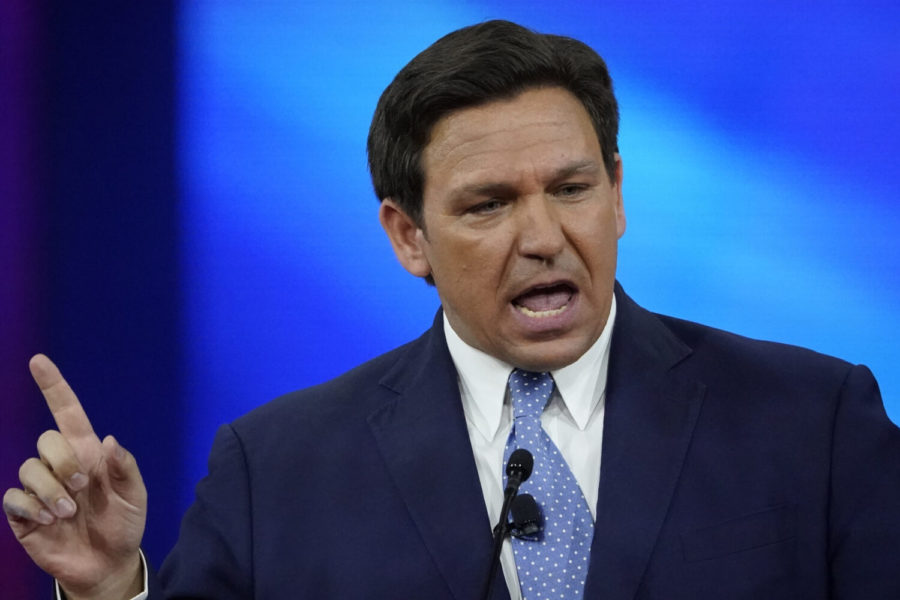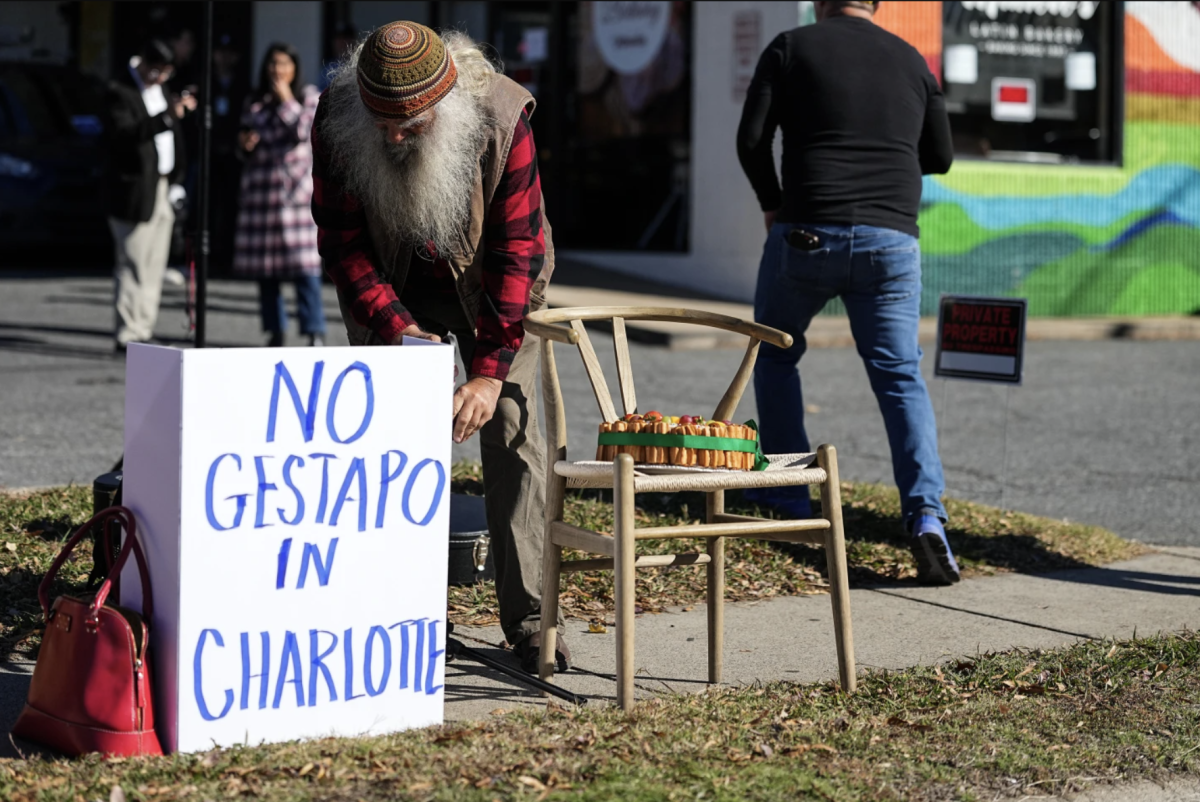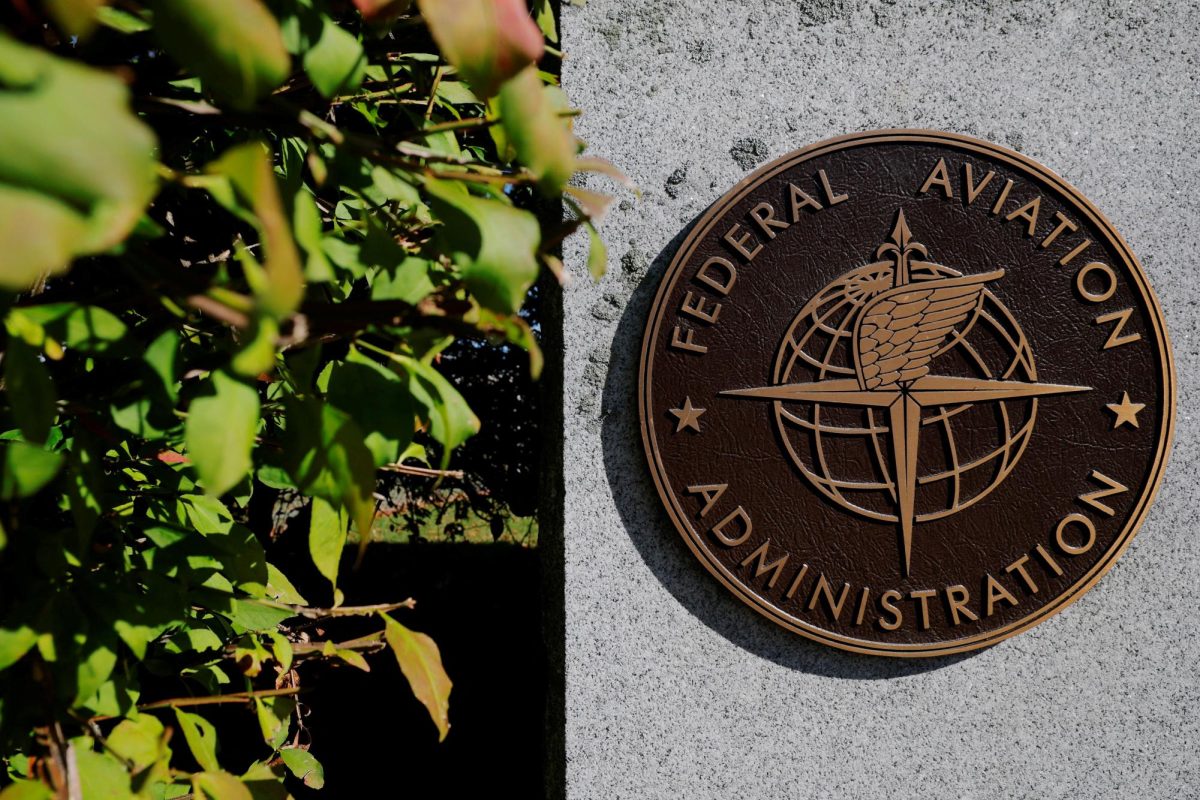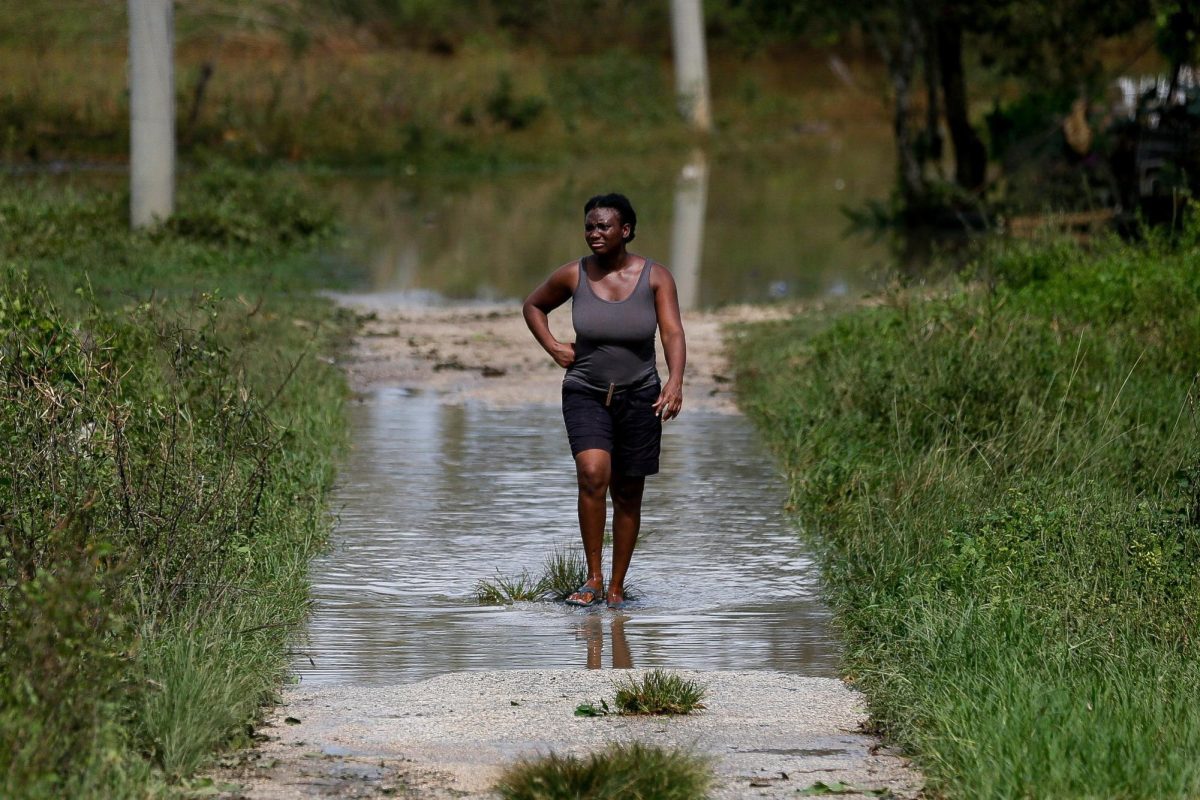Gov. DeSantis signs “Don’t Say Gay” bill
On Monday, Florida Gov. Ron DeSantis signed the Parental Rights in Education bill into law after months of debate over the bill’s language, according to NBC News. The bill prohibits “classroom discussion about sexual orientation or gender identity” in Florida public schools.
“The bill prohibits classroom instruction about sexuality or things like ‘transgender’ in K through three classrooms,” said DeSantis in a press conference. “In Florida, we don’t just think parents should be involved. We insist that they be involved.”
Many critics have called it the “Don’t Say Gay” bill due to its broad language that could infer that any conversation about LGBTQ people or their issues is inappropriate.
“Today, Governor DeSantis once again placed Florida squarely on the wrong side of history, and placed his young constituents directly in harm’s way,” said Joni Madison, the interim president of the LGBTQ advocacy group the Human Rights Campaign. “He has done this for no other reason than to serve his political ambitions.”
The bill will go into effect on July 1.
President Biden’s budget proposal increases funds for police
On Monday, President Joe Biden announced that the budget he is proposing will allocate $17.4 billion for federal law enforcement to fight violent crime, according to NBC News. This budget is $1.7 billion above the proposed level for 2021.
“We should all agree: The answer is not to defund the police. The answer is to fund the police,” said Biden during his State of the Union address.
Biden’s stance on funding the police gained support from Republicans and Democrats after months of failed attempts at police reform.
The projected budget is being allocated by having $1.7 billion for the Bureau of Alcohol, Tobacco, Firearms and Explosives to combat gun trafficking; $1.8 billion to help the U.S. Marshals Service; $69 million for the FBI and their violent crime investigations; and $72.1 million to prosecute violent crimes.
Biden also addressed “strategies such as community policing” to focus on crime prevention and intervention.
Families return home in Boulder after wildfire
An estimated 20,000 people in northern Colorado returned to their homes after leaving due to wildfires, according to AP News. The fire started on Saturday and spread to 190 acres until it was 35% contained this Monday.
The fire was located near Boulder and burned 1,000 yards of houses near the west side of the college town.
“Firefighters were trying to extinguish embers in the burned area, working them into the soil which is moist from a recent snowfall,” said incident commander Brian Oliver. “The grass which burned, however, was still dormant and dry. Pockets of smoke hung over some trees in the burn area, which would likely continue for some weeks and be monitored.”
The people of Boulder experienced a similar wildfire in December of last year. The fire burned an estimated 1,000 homes due to the strong winds, making it difficult for firefighters to contain.
Since the West Coast has been experiencing drier weather and hotter temperatures, wildfires have become more frequent throughout the region. Currently, several areas in Texas are under wildfire warnings due to dry, windy conditions.
Walmart removes cigarettes from some stores
Walmart will no longer be selling cigarettes in a variety of U.S. stores, according to CNN. Walmart is the world’s biggest retailer and has been influenced to stop its tobacco sales for years.
Stores in Florida, California, New Mexico, and Arkansas will be removing cigarettes from their shelves. To substitute cigarettes, the stores will be adding items such as grab-and-go foods and candies at self-checkout registers.
“As a result of our ongoing focus on the tobacco category,” a spokesperson for Walmart detailed that it was a “business decision” to remove cigarettes from their stores.
Walmart is not the first major retailer to remove tobacco from their stores. In 1996, Target stopped selling tobacco products. In 2014, CVS stopped selling tobacco products because it conflicted with its purpose as a health store, a move that cost the company approximately $2 billion in revenue, according to CNN.
More recently, Walgreens removed tobacco since tobacco sales were under scrutiny. CEO of Walgreens Boots Alliance Roz Brewer predicts that more retailers will begin following this trend sooner rather than later.







